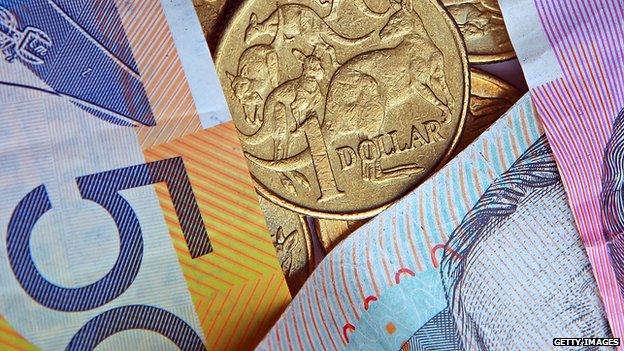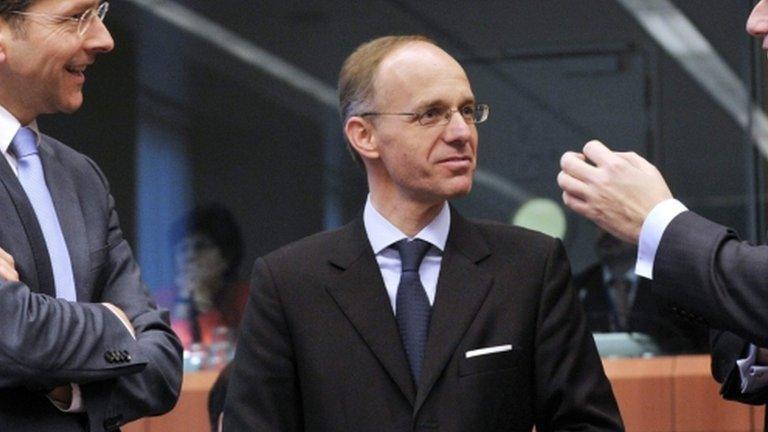Australia examines global firms' Luxembourg tax deals
- Published

The deals are said to have allowed firms to slash tax on their income in Australia
Australia is investigating whether multinational firms operating there are paying the right tax, after claims of secret tax deals in Luxembourg.
More than 300 firms - including Pepsi, Ikea and FedEx - are accused of using the deals to cut global tax bills, in a report by, external the International Consortium of Investigative Journalists (ICIJ).
A government fund is also alleged to be using Luxembourg to cut tax.
The tax minimisation strategies are not illegal - but are highly controversial.
Measures to combat tax minimisation are due to be discussed by leaders attending the G20 summit in Brisbane next week.
'Holistic strategies'
Following the ICIJ report, the Australian Taxation Office (ATO) said it was increasing efforts to ensure global firms paid tax on the income they earned in Australia.
In a statement issued on Thursday, Commissioner of Taxation Chris Jordan said the ATO was not acting alone.
"Tax issues of profit-shifting require global, holistic strategies," he said, adding that a forum of The Organisation for Economic Co-operation and Development (OECD) had agreed to boosting co-operation between tax administrations.
"We are very aware that taking action with those who do not do the right thing is critical to community confidence in our fairness and integrity, and ultimately the sustainability of the system," Mr Jordan said.
The ICIJ report, based on leaked documents, said hundreds of international firms had secured deals in Luxembourg that allowed them to slash tax bills while maintaining little presence in the European duchy.
Some of Australia's biggest companies were among those targeted by the investigation, according to a report in the Australian Financial Review , external(AFR). The paper said it had seen the leaked documents.
The paper said the Australian government's Future Fund was also involved in this tax minimisation. The Fund handles public sector superannuation liabilities - or compulsory retirement funds.
The AFR said many companies had negotiated deals with Luxembourg to reduce their taxes by routing profits through tax havens.
According to the paper, the thousands of pages of leaked documents revealed how Australian and foreign corporations were using accounting firm PricewaterhouseCoopers (PwC) to slash their tax bills to nearly zero in some cases.
'Guidance for tax professionals'
Future Fund managing director David Neal told the AFR that the fund's Luxembourg structure "is commonly used by institutional investors and external investment managers".
"The structure is predominantly about providing operational efficiency and effective risk management," he said.
A spokesman for the Future Fund told the BBC the organisation would not be providing any extra comment.
PwC Australia said it provided independent professional advice to clients on the issues that were important to them in running their businesses, including a wide range of tax issues.
"All our advice and assistance is given in accordance with applicable local, European and international tax laws and agreements and is guided by the PwC Global Tax Code of Conduct which has been in place since 2005," the firm told the BBC.
"Our global tax code sets out guidance for our tax professionals around the world on a range of issues, including taking into consideration how any tax decisions will be viewed by wider stakeholders," it said.
- Published7 April 2013

- Published5 April 2013
